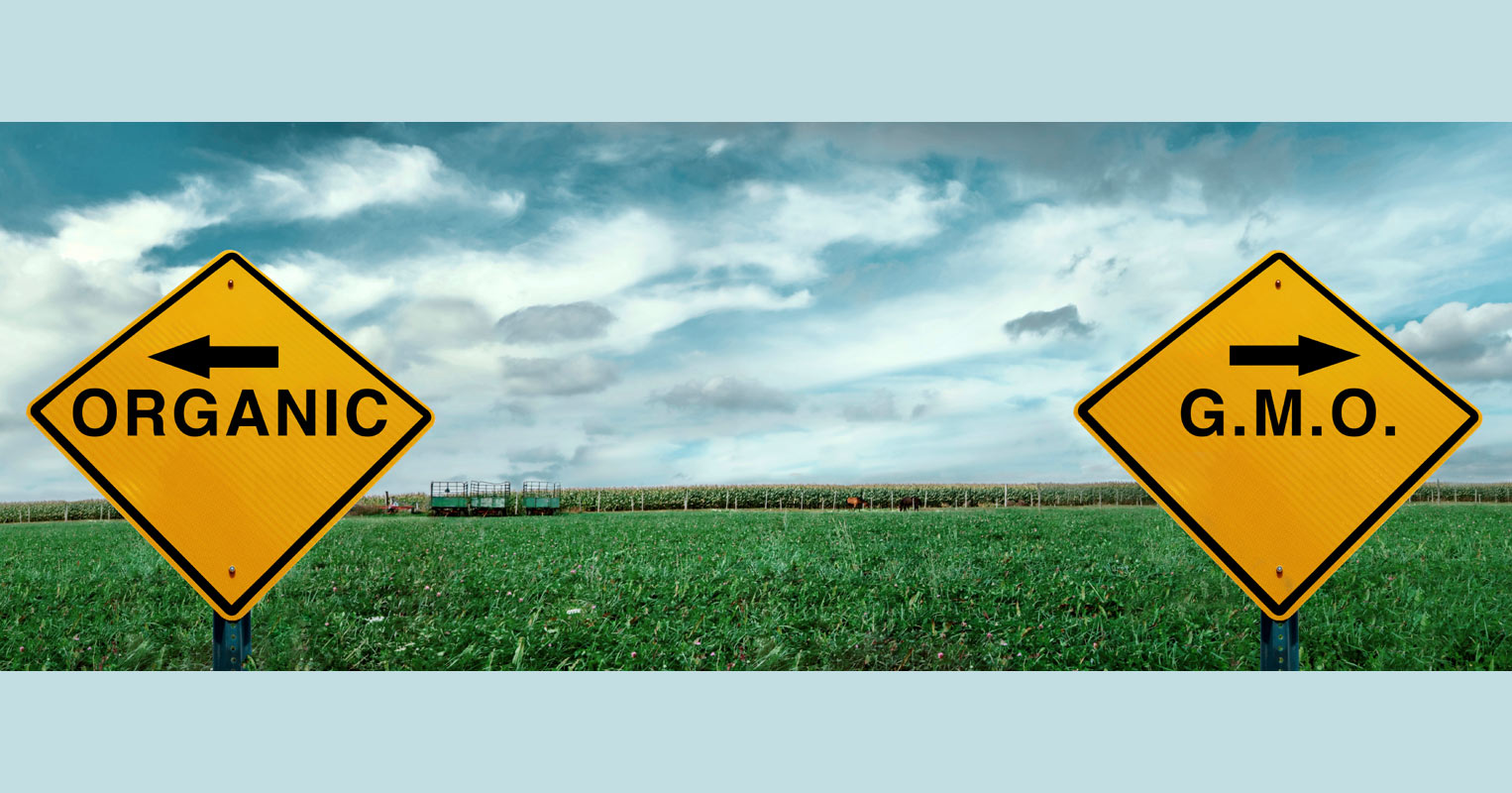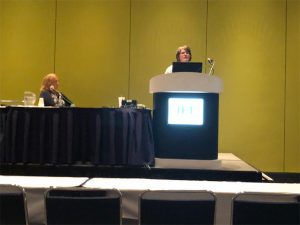Monsanto-supported “coexistence” meeting focuses on bashing organic

Two speakers with ties to Monsanto devoted much of their presentations to criticizing organic farming and food at an educational session that was supposed to focus on agricultural coexistence between organic and other farming systems.
The session, “Embracing Agriculture Co-Existence: Organic, Conventional, and Biotech,” was held at the IFT Annual Meeting and Expo held in Chicago in July.

Jennie Schmidt (left) and Annette Maggi criticized organic food and farming while praising genetically modified foods at an IFT session on coexistence of organic, conventional and GMO crops.
Annette Maggi, a dietician and food industry consultant, gave a presentation that included a slide saying it was “supported by Monsanto.” She cited a survey by the industry-funded International Food Information Council, which found that few consumers include organic in their definition of “healthy food.” She also cited a 2014 Forbes article, not a published study, showing that 84 percent of organic crops produced lower yields than their conventional counterparts, and that organic crops would require far too much land in order to produce enough food.
However, a published study by researchers at the University of California found that organic yields are about 19.2 percent lower than conventional ones, but that certain practices could reduce that gap to 8 or 9 percent. The study also found no difference in yields between organic and conventional legumes, beans, and peas.
Maggi also claimed that organic foods are not more nutritious than conventional foods, a claim that has been proven wrong by several published studies. One of those studies published in the United Kingdom in 2015 found conclusive evidence that organic crops are up to 60 percent higher in a number of key antioxidants than conventionally-grown ones.
Maggi repeated a wrong and oft-repeated claim that organic farmers use toxic pesticides such as rotenone and others. The reality is that the U.S. Environmental Protection Agency has banned the use of rotenone in the United States.
She cited a study she heard about that claimed low-income mothers felt so much social pressure to buy organic food that they decided not to buy vegetables at all. Maggi gave no source for this dubious study.
Maggi also repeated the Monsanto claim that the world will need to produce much more food to meet the needs of a global population by 2050. She said the key to producing more food is to increase crop yields and that biotechnology has been shown to produce higher yields.
“Biotech has increased yields beyond conventional methods,” she said.
Maggi claimed that genetic engineering of foods is “precise,” another claim that has been disputed.
Regarding coexistence of organic, conventional, and organic crops, Maggi said: “There’s no reason they can’t coexist.”
Jennie Schmidt, a farmer and dietician based in Maryland and also supported by Monsanto, continued the organic-bashing. Schmitt, who said she had previously farmed organically, claimed that organic farmers’ use of tillage or plowing was causing soil run-off into the Chesapeake Bay.
“The organic system disturbs soil,” said Schmitt, who was chosen by Monsanto as America’s Farmers Mom of the Year in 2011.
She also claimed that no-till farming is hard to do in organic production even though organic farmers are adopting no-till practices.
Schmidt also claimed that the organic farming system results in higher costs and reduced crop yields that won’t offset the premium prices paid for organic crops.
However, a Washington State University study found that costs for conventional and organic farming are about the same while organic is 22 to 35 percent more profitable for farmers than conventional.
Like Annette Maggi, Schmidt said little about coexistence between organic, conventional, and GMO crops, which was supposed to be the focus of the session.




